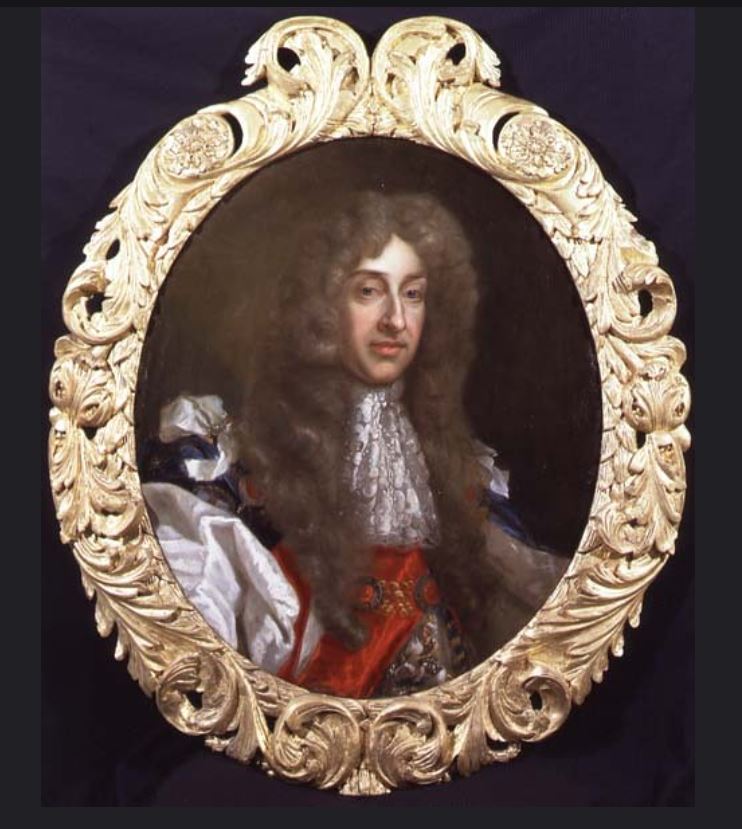
James II deposed in the "Glorious Revolution" of 1688
Oaths have been used through the centuries in an attempt to make a person act in a responsible way, to tell the truth, behave according to the law, or conform their beliefs with the policies of the ruling power. It only works, of course, if the thing that the person swears on, e.g., the bible, is something seen by the person as exercising real power over their fate, or if the person wants to be seen as trustworthy or respectable. In the late 1600s, it was generally true that people took the bible seriously. In small communities, being seen as respectable was important for one’s social and financial success.
The text of eleven oaths can be found in this Minute Book at the following locations:
- two oaths of supremacy (on p. 35v and p. 109v)
- one for the Town clerk, p. 47r
- an oath of fidelity to King William and Queen Mary, p. 109v
- two oaths of a freeman, p. 110r, and p. 40
- two oaths of a burgess, p. 110v, and p. 41
- two oaths of a portreeve, p. 110v, and p. 41
- the oath of a Commons councillor, p. 113v
- an oath against Catholicism, p. 115v
- the oath of Constables, p. 2*
*see A Note on Pagination at the beginning of the Transcription
Oath of supremacy
Briefly, the oath of supremacy had been required since the late 1500s to restrict government posts to those who asserted that the English monarch was the head of the Church, thereby ruling out Catholics in government offices. After James II was deposed by William and Mary, an oath was instituted to ensure that they would be accepted as the legitimate monarchs and not James II.
Oath of a freeman
The oath of a freeman was instituted so that those so designated could be clear about what was expected of them as supporters of their borough. This included following the rules set down by the portreeve and the burgesses which focused on promoting the good of the borough and protecting it from economic competition. A portreeve was similar to a mayor but was the term used in a port town. The term has the same antecedent as ‘sheriff’, which was initially the ‘shire reeve’, gradually changing to a shireeve, thence sheriff.
Oaths of burgess, portreeve, constable
Upon election to the borough council, a burgess was administered the relevant oath, again focused on promoting the good of the borough over competition and requiring the burgess to actually work for the borough when action was required. The portreeve was a burgess who steered the borough and collected the income from rent, tariffs and taxes. Lack of executing the office, and outright corruption made an oath for this office necessary. The constables likewise took an oath so they could be clear as to what their office involved.
Oath against Catholicism
The oath against Catholicism required people to specifically declare that they did not believe in the authority of the pope or transubstantiation, among a number of other Catholic dogmas. This was another angle to try to protect the crown from Catholics who often supported James II and his son, James III, as he was known. The pope was thought to be actively plotting against Protestant England.